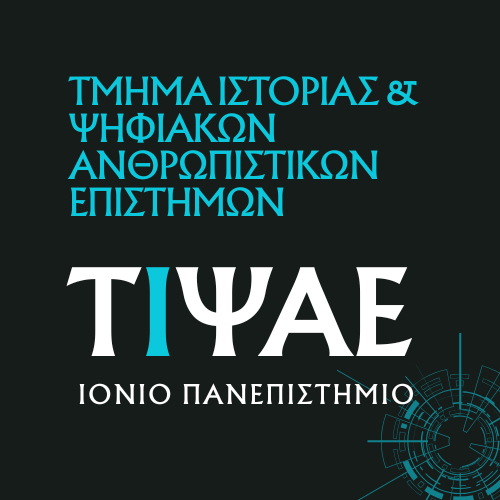TOPICS ON MODERN EUROPEAN HISTORY: THE BATTLE OF THE BOOKS
Teaching Staff: Kokkomelis Nikos
Course Code: ΙΝΧ207
Course Type: Compulsory Elective
Course Level: Undergraduate
Course Language: Greek
Delivery method: Lectures
Semester: 8th
ECTS: 5
E Class Page: https://opencourses.ionio.gr/courses/DHI302/
Curricula: Curriculum in History up to 2024-25, Curriculum in History and Digital Humanities from 2025
The Baroque era, Classicism and the Enlightenment were not only times of renewed admiration for the Greco-Roman world. The critiques of antiquity from the 16th to the 18th centuries create a field of fruitful debate as to the usefulness of the experience of the ancients for moderns and, by extension, as to the weight that the ancient paradigm should (or should not) carry for the present of modern societies - the present of European expansion in the world, the triumph of trade, the integration of political thought with economics. The aim of the course is to reconstruct, through the most important historical, philosophical and political texts of the period, the different interpretations of the ancient world until the moment when the conception of antiquity as the "childhood" of Western civilization is consolidated.
By the end of the semester students will be able to know the content, the stakes and the main phases of the intellectual conflict that became known as the "Battle of the Books". They will come into contact with the concepts of analogy, differentiation and progress as tools of historical analysis, alongside their familiarity with the concepts of paradigm and temporality. Enrolled as a continuation of the courses "Modern European History" (Y, 3rd semester) and Historiography (EY, 4th semester), the course is addressed to students who want to deepen their knowledge of intellectual history by focusing on fundamental texts of the European cultural tradition.
Lecture 1: Introduction
Lecture 2: Temporalities: analogy - differentiation - progress
Lecture 3: 1612-1623: The "Querelle" in Italy
Lecture 4: The "Querelle" and the modern program of the French monarchy
Lecture 5: The Ancient/Modern pair and seventeenth-century literary criticism.
Lecture 6: The"Querelle" over Homer
Lecture 7: The "Querelle" in England. The Battle of the Books
Lecture 8: An Ancient among Moderns. Plutarch
Lecture 9: A Crisis of European Consciousness (?)
Lecture 10: On the fringes of Europe: Nicholas Mavrokordatos, critic of Machiavelli
Lecture 11: A Modern among Ancients. Johann Joachim Winckelmann
Lecture 12: The French Revolution and Antiquity
Lecture 13: Which past and which present? Exercise in an analysis of Jacques Le Goff
- Ιστορία των εννοιών. Διαδρομές της ευρωπαϊκής ιστοριογραφίας, «Θεωρία και μελέτες ιστορίας» 20, Ε.Μ.Ν.Ε – Μνήμων, Αθήνα 2006.
- Matei Calinescu, Πέντε όψεις της νεωτερικότητας. Μοντερνισμός, Πρωτοπορία, Παρακμή, Κιτς, Μεταμοντερνισμός, μτφ. Ανδρέας Παππάς, ΑΣΚΤ, Αθήνα 2011.
- Marc Fumaroli, « Les abeilles et les araignées», La Querelle des Anciens et des Modernes, επιμ. Anne-Marie Lecoq, Παρίσι, Gallimard, folio classique, 2001
- François Hartog, Καθεστώτα ιστορικότητας, μτφ. Δημήτρης Κουσουρής, Αλεξάνδρεια, Αθήνα 2014.
- Paul Hazard, Η κρίση της ευρωπαϊκής συνείδησης (1680-1715), μτφ. Βάιος Ντάφος, εκδόσεις Αμολγός, Αθήνα 2019.
- Gilbert Highet, Η κλασική παράδοση. Ελληνικές και ρωμαϊκές επιδράσεις στη λογοτεχνία της Δύσης, ΜΙΕΤ, Αθήνα 2000.
- H. R. Jauss, Η θεωρία της πρόσληψης. Τρία μελετήματα, μτφ. Μίλτος Πέχλιβάνος, Αθήνα, Εστία 1995.
- Jacques Le Goff, Ιστορία και μνήμη, μτφ. Γιάννης Κουμπουρλής, εκδόσεις Νεφέλη, Αθήνα 1998.
- Joseph Levine, The Battle of the Books. History and Literature in the Augustan Era, Cornell University Press, Ithaca – London, 1991.
- Jennifer Tolbert Roberts, Η Αθήνα στο εδώλιο. Η αντιδημοκρατική παράδοση στη δυτική σκέψη, μτφ. Π. Ι. Χιωτέλλης εκδόσεις Χιωτέλλη, Αθήνα 2004.
- Quentin Skinner, Μακιαβέλλι, μτφ. Κώστας Αθανασίου, εκδόσεις Νήσος, Αθήνα 2002.
- Leo Strauss, Πολιτική φιλοσοφία και ιστορία, μτφ. Γεράσιμος Ασημίδης, Αθήνα, Έρασμος 2019.
- Pierre Vidal – Naquet, Πέρα από την αρχαία ελληνική δημοκρατία, μρφ. Θέμης Μιχαήλ, εκδόσεις Αλεξάνδρεια, Αθήνα 1999.
- Νάσια Γιακωβάκη, Ευρώπη μέσω Ελλάδας. Μια καμπή στην ευρωπαϊκή αυτοσυνείδηση, 17ος-18ος αιώνας, Αθήνα, Εστία 2006.
- Πασχάλης Κιτρομηλίδης, Πολιτικοί στοχαστές των νεοτέρων χρόνων, Γνώση, Αθήνα 1992.
3 hour lectures course
Commenting on written and audiovisual sources
Written exam
Back



